Our Response to COVID-19 →

Medical Tourism
Singapore’s role in shaping medical travel.
Singapore stands as a beacon of excellence in the realm of medical travel, having carved a unique niche for itself in this rapidly expanding industry. This comprehensive exploration of Singapore's contribution to medical tourism will cover various aspects including its innovative healthcare system, state-of-the-art facilities, and the country's strategic approach to becoming a global leader in this sector.
Singapore’s Healthcare Excellence: A Foundation for Medical Tourism
At the heart of Singapore's success in medical travel is its world-class healthcare system. Renowned for its high standards of patient care, cutting-edge medical technology, and robust healthcare infrastructure, Singapore offers a compelling proposition for those seeking quality medical treatments abroad. The combination of expert medical professionals, advanced treatments, and a strong emphasis on patient safety and satisfaction positions Singapore as a preferred destination for international patients.
Strategic Location and Global Connectivity
Singapore's strategic geographical location in Southeast Asia makes it an accessible hub for medical tourists from around the world. Its world-renowned Changi Airport, often cited as one of the best airports globally, provides seamless connectivity, making travel for medical purposes both convenient and efficient. This connectivity, coupled with Singapore's political stability and multilingual environment, adds to its attractiveness as a medical travel destination.
Cutting-Edge Medical Facilities and Specializations
Singapore boasts an array of state-of-the-art medical facilities that cater to a wide range of medical needs. From specialized cancer treatment centers to advanced cardiac care units, the country's hospitals are equipped with the latest medical technology and staffed by highly trained medical professionals. Singapore's medical sector is particularly noted for its expertise in areas such as cardiology, oncology, neurology, orthopedics, and ophthalmology.
Government Initiatives and Regulations
The Singaporean government plays a pivotal role in promoting and regulating medical travel. Through various initiatives and strict regulatory frameworks, the government ensures that the medical tourism sector operates at the highest standards. This includes stringent accreditation processes for healthcare facilities and professionals, ensuring that they meet international benchmarks of quality and safety.
Health and Wellness Tourism
Beyond conventional medical treatments, Singapore is also emerging as a destination for wellness and preventive healthcare. The country offers a range of health screening programs, wellness retreats, and traditional Eastern therapies, which are becoming increasingly popular among health-conscious travelers.
Digital Healthcare and Innovation
Singapore is at the forefront of digital healthcare innovation, integrating technology into patient care to enhance the medical travel experience. Telemedicine, electronic health records, and AI-driven diagnostics are some of the digital advancements that are streamlining healthcare services for medical tourists.
Tailored Services for International Patients
Understanding the unique needs of medical tourists, Singapore's healthcare providers offer tailored services to ensure a comfortable and stress-free experience. This includes language translation services, assistance with travel and accommodation, and personalized care coordination. These services reflect Singapore's commitment to providing a holistic and patient-centric approach to medical travel.
Collaborations and Partnerships
Singapore actively engages in international collaborations and partnerships to advance its medical travel sector. This includes tie-ups with overseas medical institutions, participation in global healthcare networks, and hosting international medical conferences. Such collaborations enhance knowledge exchange and position Singapore as a thought leader in the medical tourism industry.
Challenges and Opportunities
While Singapore has established itself as a leader in medical travel, it continues to navigate challenges such as regional competition and the evolving needs of medical tourists. The country is responding by focusing on innovation, sustainability, and diversifying its medical tourism offerings.
The Future of Medical Travel in Singapore
Looking ahead, Singapore is poised to further strengthen its position in the medical travel industry. With continued investment in healthcare innovation, a focus on personalized patient experiences, and a commitment to maintaining high standards of care, Singapore is set to remain a top destination for medical tourists seeking quality, safety, and excellence.
Singapore’s role in shaping medical travel is marked by its exceptional healthcare system, strategic initiatives, and a patient-centered approach. As a leading destination in the global medical tourism landscape, Singapore exemplifies how quality healthcare, innovation, and strategic positioning can converge to create a thriving medical travel ecosystem. With its ongoing efforts to evolve and adapt, Singapore is not just a pioneer but also a visionary in the realm of medical tourism, promising a brighter, healthier future for patients across the globe.
To receive a free quote for this procedure please click on the link: https://www.medicaltourism.com/get-a-quote
For those seeking medical care abroad, we highly recommend hospitals and clinics who have been accredited by Global Healthcare Accreditation (GHA). With a strong emphasis on exceptional patient experience, GHA accredited facilities are attuned to your cultural, linguistic, and individual needs, ensuring you feel understood and cared for. They adhere to the highest standards, putting patient safety and satisfaction at the forefront. Explore the world's top GHA-accredited facilities here . Trust us, your health journey deserves the best.
Top Metabolic Surgery Specialists in Antigua and Barbuda
Una guía integral de los mejores hospitales para cirugía metabólica en la república dominicana, leading centers for digestive health procedures, best hospitals for cyberknife radiosurgery in turkey, jeddah's premier hospital for thoracic surgery: a comprehensive review, gestación subrogada y resolución de disputas: navegando conflictos entre las partes, gestación subrogada y preocupaciones éticas, gestación subrogada y parejas con creencias religiosas, gestación subrogada y padres solteros: un camino hacia la paternidad, continue reading, featured reading, certified medical tourism professional (cmtp): bridging the medical tourism training gap, cultural competency and the medical travel patient experience, medical tourism magazine.
The Medical Tourism Magazine (MTM), known as the “voice” of the medical tourism industry, provides members and key industry experts with the opportunity to share important developments, initiatives, themes, topics and trends that make the medical tourism industry the booming market it is today.
- Today's news
- Reviews and deals
- Climate change
- 2024 election
- Fall allergies
- Health news
- Mental health
- Sexual health
- Family health
- So mini ways
- Unapologetically
- Buying guides
Entertainment
- How to Watch
- My Portfolio
- Latest News
- Stock Market
- Biden Economy
- Stocks: Most Actives
- Stocks: Gainers
- Stocks: Losers
- Trending Tickers
- World Indices
- US Treasury Bonds Rates
- Top Mutual Funds
- Options: Highest Open Interest
- Options: Highest Implied Volatility
- Basic Materials
- Communication Services
- Consumer Cyclical
- Consumer Defensive
- Financial Services
- Industrials
- Real Estate
- Stock Comparison
- Advanced Chart
- Currency Converter
- Credit Cards
- Balance Transfer Cards
- Cash-back Cards
- Rewards Cards
- Travel Cards
- Credit Card Offers
- Best Free Checking
- Student Loans
- Personal Loans
- Car insurance
- Mortgage Refinancing
- Mortgage Calculator
- Morning Brief
- Market Domination
- Market Domination Overtime
- Asking for a Trend
- Opening Bid
- Stocks in Translation
- Lead This Way
- Good Buy or Goodbye?
- Financial Freestyle
- Capitol Gains
- Living Not So Fabulously
- Decoding Retirement
- Fantasy football
- Pro Pick 'Em
- College Pick 'Em
- Fantasy baseball
- Fantasy hockey
- Fantasy basketball
- Download the app
- Daily fantasy
- Scores and schedules
- GameChannel
- World Baseball Classic
- Premier League
- CONCACAF League
- Champions League
- Motorsports
- Horse racing
- Newsletters
New on Yahoo
- Privacy Dashboard
Yahoo Finance
Medical tourism statistics: emerged as a significant global industry where individuals travel across international borders to seek medical treatment.
According to Market.us Media, The medical tourism industry is booming, with annual growth estimated at 15-25%. Patients are drawn to popular destinations like Thailand, Mexico, India, Turkey, Malaysia, Costa Rica, and Singapore due to substantial cost savings of 40-80%. Remarkably, over 90% of medical tourists express high satisfaction with their care. This thriving industry contributes over $100 billion annually to the global economy.
New York, Sept. 29, 2023 (GLOBE NEWSWIRE) -- Medical tourism has emerged as a significant global industry where individuals travel across international borders to seek medical treatment, often for reasons such as cost savings, access to specialized treatments, or shorter wait times. This phenomenon has gained momentum due to advancements in transportation, communication, and healthcare technologies, making it easier for patients to access medical services in different parts of the world. While specific statistics may vary from year to year, the following provides a general overview of medical tourism statistics .
Editor’s Choice
Growth Rate : The medical tourism industry is growing at an estimated rate of 15-25%
Top Destinations : Popular medical tourism destinations include Thailand, Mexico, India, Turkey, Malaysia, Costa Rica, and Singapore .
Motivation - Cost : Approximately 40-80% savings on medical procedures motivate patients to seek treatment abroad.
Common Procedures : The most sought-after medical procedures in medical tourism include cosmetic surgery, dental treatments, orthopedic surgeries, and cardiac procedures.
Patient Origin : The majority of medical tourists come from the United States, Canada, the United Kingdom, and Western Europe.
Satisfaction Rate : Over 90% of medical tourist’s express satisfaction with the quality of care received during their medical journey.
Economic Impact : The medical tourism industry is estimated to contribute over $100 billion annually to the global economy.
Global Medical Tourism Market Key Statistics
The global medical tourism market size is expected to be worth around USD 35.9 Bn by 2032 from USD 11.7 Bn in 2022 , growing at a CAGR of 12.20% during the forecast period from 2022 to 2032.
The Asia Pacific region is the largest market for medical tourism, accounting for 75% of the global market in 2021.
Medical tourism can save patients up to 70% on the cost of care compared to the United States.
Request Sample Report and Drive Impactful Decisions: https://market.us/report/medical-tourism-market/request-sample/
Reasons for Medical Tourism
Cost Savings : The primary reason for medical tourism is cost savings, with procedures often costing 30-80% less than in the patient's home country.
Quality of Care : About 50% of medical tourists choose medical tourism destinations due to access to high-quality healthcare services.
No Insurance Coverage : Around 25% of medical tourists seek treatment abroad because certain procedures aren't covered by their insurance plans.
Shorter Wait Times : Long waiting lists in home countries drive 20% of medical tourists to seek faster treatment options abroad.
Advanced Technology: Approximately 30% of medical tourists travel to access cutting-edge medical technology and treatments.
Privacy and Confidentiality : About 15% of medical tourists prioritize the privacy and confidentiality offered by healthcare facilities abroad.
Lack of Local Expertise : Nearly 20% of medical tourists travel because the specific medical expertise they need is unavailable locally.
Holistic and Alternative Therapies : Around 10% of medical tourists seek alternative therapies and holistic treatments available in certain medical tourism destinations.
Combining Treatment with Vacation : Approximately 40% of medical tourists view medical travel as an opportunity to combine treatment with leisure and vacation.
Referrals and Recommendations : Recommendations from friends, family, and medical professionals influence the medical tourism decision of about 25% of patients.
Get deeper insights into the market size, current market scenario, future growth opportunities, major growth driving factors, the latest trends, and much more. Buy the full report here
Top Medical Tourism Destinations
Medical Tourism in India
The Indian medical tourism market is estimated to be worth $6 billion.
India receives around 500,000 medical tourists annually , making it a prominent destination.
Cardiac surgery and orthopedic procedures are some of the most sought-after treatments by medical tourists due to India's expertise.
Medical tourists in India can experience savings of 65-90% on medical expenses compared to Western countries.
The country offers over 20,000 registered medical tourists' beds across various hospitals, ensuring quality care.
India's accredited medical facilities and skilled doctors provide a high level of patient satisfaction.
The Indian government has taken steps to simplify the medical visa process, enhancing the ease of access for international patients.
Medical Tourism in Thailand
The number of medical tourists visiting Thailand has increased by 20% per year in recent years (Source: Patients Beyond Borders).
Thailand has over 100 hospitals and clinics that are accredited by the Joint Commission International (JCI).
Over 5 million medical tourists visit Thailand annually for healthcare services.
Medical treatments in Thailand can cost 30-70% less than in Western countries, attracting budget-conscious patients.
The value of medical tourism in Thailand amounted to around nine billion U.S. dollars. This was forecast to reach approximately 4 billion U.S. dollars in 2027.
Government policy aims for Thailand to be a 'Medical and Wellness' destination and a world-class medical hub.
In 2017, international patients were forecasted to generate THB 48-49 billion in income for private hospitals, showing a 3%-4% growth from the previous year.
The number of international patients is projected to increase to 4-3.3 million, including medical tourists and expats.
Medical tourism is expected to support a tourism sector growth of approximately 16% annually during 2017-2020.
Medical Tourism in Singapore
The average cost of medical care in Singapore is 30-50% lower than in the United States.
Singapore receives 500,000 medical tourists each year.
The cost of knee replacement surgery in Singapore is S$22,000 , more than double Malaysian prices at S$10,000.
Singapore's medical cost inflation was 10% in 2018, 10 times the estimated rate of 1%.
The cost of medical visits and treatments in Singapore has increased by approximately 9% since 2015.
Singapore is ranked the most expensive city in the world for the 6th year running.
Singapore's healthcare remains competitive compared to the US. For instance, a knee replacement surgery costs more than double in the US at US$35,000 compared to US$16,000 in Singapore.
More than half of Singapore's medical tourists are from Indonesia, with approximately 250,000 Indonesians visiting Singapore for medical care each year.
Age and Gender Distribution of Medical Tourism
Age Distribution: The majority of medical tourists fall within the age range of 40 to 60 years old, comprising around 45% of all medical tourists.
Gender Breakdown: Women constitute a higher percentage of medical tourists, making up approximately 60% of the total medical tourism population.
Younger Patients: An emerging trend shows a rise in medical tourists aged 18 to 30, accounting for about 15% of the total medical tourism demographic.
Elderly Medical Travelers: Patients aged 60 and above make up about 25% of medical tourists, seeking specialized treatments such as joint replacements and cardiac surgeries.
Gender Preference in Procedures: Women often dominate cosmetic procedures, constituting about 80% of patients, while men tend to seek treatments for cardiology and orthopedics.
Economic Impact of Medical Tourism
Medical tourism is estimated to contribute over $100 billion to the global economy annually.
Popular medical tourism destinations often witness an increase of up to 25% in healthcare-related revenue.
Employment opportunities in medical tourism-related sectors can grow by 15% in certain regions.
Infrastructure development in medical tourism hubs can attract investments exceeding $500 million.
Medical tourism can account for up to 10% of a country's GDP in certain cases.
Final Thoughts
Medical tourism offers individuals an exciting way to access healthcare while at the same time discovering a world-class travel experience. Globalization of healthcare has given rise to this industry, providing patients access to treatments or procedures abroad that may cost less or require shorter wait times compared to their home country.
As medical tourism evolves, travelers should carefully evaluate the quality, safety and regulatory standards of medical facilities they plan on visiting in their chosen destinations. Medical tourism stresses the necessity for informed decision-making that balances both travel and medical components to create a successful experience for both aspects.
Explore More Trending Statistics
Wearable Healthcare Technology Statistics: Wearable technology will flourish over the next 25 years, resulting in a global cost savings of over $200 billion in the healthcare industry. 30% of American adults use wearable technology for healthcare as of 2020.
Telemedicine Statistics: Asia Pacific region showed a 52% increase in telehealth access to primary physicians/general patient services from 4% to 56%.
mHealth Apps Statistics: While 84 million people in the U.S. use healthcare apps, among them 30% of individuals rely on smartphones and mhealth apps.
Therapist Statistics: There are more than 192,497 therapists are currently employed in the United States. There are 75.6% of therapists are women.
Schizophrenia Statistics: The average potential of life lost for individuals with schizophrenia in the United States is 28.5 years.
Mental Health Statistics: In 2021, 52.8 million adults with Any Mental Illness, and 26.5 million adults received mental health services.
Eating Disorder Statistics: Eating disorders have a high mortality rate of any mental illness, with an estimated 10% of individuals with anorexia nervosa.
Hearing Loss Statistics: According to World Health Organization (WHO), 50% of hearing loss can be prevented through public health measures.
Long-term care Statistics: The total revenue share of nursing care services in the long-term care market is 35.2% in 2022, due to its high demand from developing countries.
Anti-aging Statistics: The anti-aging products market is dominated by the Asia Pacific region which holds a market share of 43% with revenue of USD 17.7 bullion.
mRNA statistics: In 2021, the revenue of the mRNA market was USD 50 billion and it is expected that the revenue will decrease to USD 23 billion by 2035.
Precision Medicine statistics: The North America region is dominant in the global precision medicine market with the largest market revenue of USD 33.4 billion.
CRISPR statistics: The efficiency of CRISPR - mediated gene editing is increasing, with success rates ranging from 50% to 90% in different experimental setups.
Remote Patient Monitoring Statistics: Asia Pacific region showed a 52% increase in telehealth access to primary physicians/general patient services from 4% to 56%.
Digital therapeutic Statistics: It is estimated that up to USD 250 billion of the US healthcare spending could be virtualized, because of the accelerated adoption of telehealth solutions driven by the pandemic.
Technology in Mental Health statistics: Around 70% of individuals reported that they would feel comfortable seeking mental health support from a Chatbot .
Internet of Medical Things Statistics: North America is estimated to be the dominator in the global Internet of Things market, with the largest market share of 35.8% and revenue of USD 17.43 billion.
Plastic Surgery Statistics: In 2022, there are 30 million aesthetic procedures performed by plastic surgeons , 12.8 million were surgical and 17.6 million were nonsurgical.
Robotic Surgery Statistics: Robotic surgeries have increased to 15% of total surgical procedures despite limited evidence supporting them.
Smart bandages statistics: The use of smart bandages is comparatively less in people aged 55+ and under 18 with 7% and 10% respectively.
Healthcare Asia Magazine website works best with Javascript enabled. Please enable your javascript and reload the page.
- Sections Co-Written / Partner Healthcare
- Events There are no upcoming events found. Please try again later.
- Advertising Advertising Digital Events

Singapore's medical tourism revenue up 10% in the last 10 years
Thanks to expertise and top-notch infrastructure.
It has been noted that Singapore’s reputed high-end medical infrastructure and expertise in complex procedures have been drawing in medical tourists.
According to a research note from Maybank Kim Eng, with high price points, the bulk of the patients belong to the premium segment and are more inelastic to pricing and currency fluctuations.
Further, medical tourism revenue grew at a 10% CAGR in the last decade, to around SG$1b currently.
Here's more from Maybank Kim Eng:
With GDP growth averaging c.5% in the past decade, median income in the country has been climbing in tandem. Rising affluence is typically accompanied by demand for better-quality services and shorter waiting and treatment times. As a result, healthcare spending in the private sector has been rising.
In the past decade, the population has aged. The number of citizens aged 65 years and above went from one in 11 in 2005 to one in eight in 2015. Based on the government’s 2013 Population White Paper, this is expected to increase further to one in six by 2020. In addition, hospital admission rate increases with age.

How can hospitals boost their cyber defences?

Prosthetic robot arm market to rise at 14.8% CAGR through 2028
...there are many ways you can work with us to advertise your company and connect to your customers. Our team can help you dight and create an advertising campaign, in print and digital, on this website and in print magazine.
We can also organize a real life or digital event for you and find thought leader speakers as well as industry leaders, who could be your potential partners, to join the event. We also run some awards programmes which give you an opportunity to be recognized for your achievements during the year and you can join this as a participant or a sponsor.
Let us help you drive your business forward with a good partnership!

Asian Hospital invests in high-tech to fight The Big C

Healthcare Asia Awards 2024 Winner: IHH Healthcare Malaysia and Prince Court Medical Centre

KL Wellness City welcomes new executive director for international hospital team

DKSH tackles healthcare inequities with strategic partnerships
Resource center, the untold story of the telehealth surge: new partnerships and new risks, ai adoption and maturity in healthcare: an industry benchmark, print issue.

Healthcare Asia Medtech Awards
Healthcare asia awards, healthcare asia pharma awards, partner sites.


- Medical care
- Arts & Culture
- Press Releases
- IndoConnect
- Opportunity Indonesia
Select Page
Singapore Ranks High in Global Medical Tourism
Oct 3, 2023 | Cover Story , Health , IndoConnect

SINGAPORE’S ROBUST HEALTHCARE SYSTEM CONTINUES TO ATTRACT MEDICAL TOURISTS
ACCORDING to the Medical Tourism Association, Singapore ranks second globally, after Canada in the Medical Tourism Index. Statista also shows that in 2023, Singapore is ranked first in having the best health system in the world index score of 86.9, followed by Japan and South Korea.
In recent months, Singapore’s Ministry of Health (MOH) has taken steps to enhance healthcare accessibility for its citizens and permanent residents. Between September 2022 and January 2023, the MOH implemented changes to the subsidy frameworks for services and drugs provided at public acute hospitals, community hospitals, and specialist outpatient clinics. The objective of these changes is to better target those who are in need.
For foreigners working in Singapore with employment passes, private health insurance is a mandatory requirement. This ensures that they have access to quality healthcare while also alleviating the burden on the public healthcare system. Additionally, non-governmental insurance schemes provided by the National Trade Union Congress (NTUC) have been making healthcare more affordable and accessible. The excellence of the international health insurance plan lies in its flexibility, which means that you can customize your plan by including your preferred benefits, regardless of your location.
There are 19 Acute hospitals, 1 Psychiatric hospital and 9 Community hospitals that offer exceptional healthcare services with state-of-the-art facilities and well-trained medical specialists. Singaporean private hospitals provide services specific to the International patients such as Thomson Medical , Raffles Hospital , Farrer Park Hospital , and the Parkway Group, which includes Mount Elizabeth Hospital , Gleneagles Hospital , and Parkway East Hospital .
For more information about the services offered by public hospitals in Singapore, visit the Ministry of Health (MOH) website or explore the respective websites of these healthcare institutions.
Related Posts
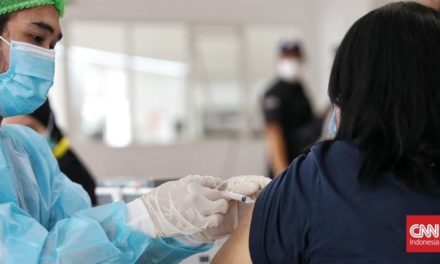
WANTED: Indonesian Healthcare Workers for Singapore
December 30, 2022
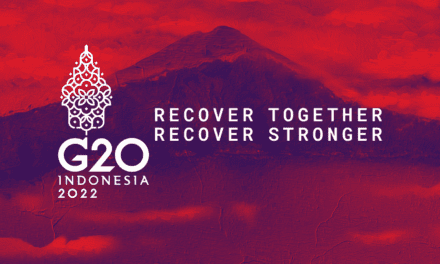
PRIMER ON INDONESIA’S G20 SUMMIT & PRESIDENCY
November 15, 2022

INDOCONNECT VOL 5 NO 3 2017
May 1, 2017
Indonesian Health Ministry Enhances Cancer Detection Services Across Community Health Centers
February 19, 2024
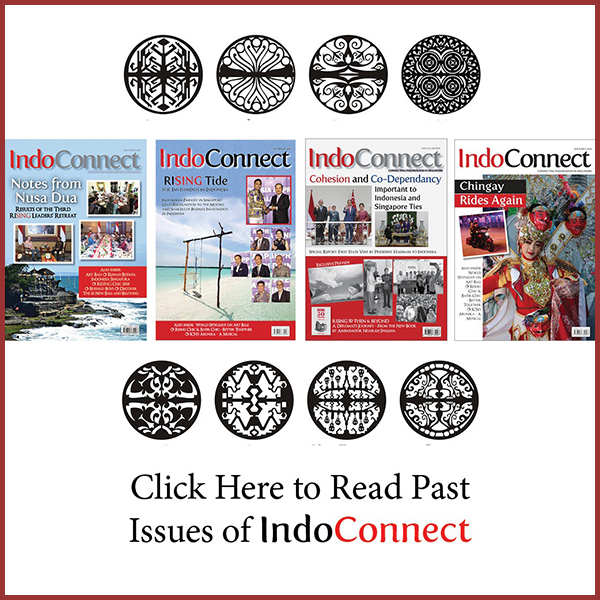
Recent News
- Singapore Shows Interest in Investing in Nusantara’s Development
- Singapore’s SM Teo Visit President Jokowi Ahead of ISF 2024
- ISF 2024 Kicks Off with Focus on Global Climate Action
- Comprehensive Guide for Indonesians Travelling to Singapore: Key Steps and Tips
- 36th Safkar Indopura Joint Exercise Strengthened Indonesia-Singapore Military Cooperation
- APEC Summit
- Barang-Barang
- Cover Story
- Defense and Maritime Security
- Electronics
- Environment
- Food and Beverage
- Investment Seminar
- Leisure and Pleasure
- Opening Doors
- Uncategorized
DESTINATION

1. Overview
Brief introduction to singapore and its reputation in medical tourism.
Located at the crossroads of Asia, Singapore is a globally recognized hub for finance, technology, and healthcare. Known for its efficiency, high standards, and state-of-the-art medical facilities, Singapore has established itself as a leading destination for medical tourism. Its healthcare system consistently ranks among the top in the world, attracting patients from various continents who seek specialized medical treatments, modern healthcare technology, and high-quality patient care.
Historical and Cultural Significance in Medicine
Historically, Singapore's commitment to healthcare can be traced back to its colonial days, where it served as a regional base for medical services under British rule. Over the years, the nation has transitioned from a healthcare backwater to a global powerhouse, thanks in part to significant investment in research and medical training. The blending of various cultures—Malay, Chinese, Indian, and Western—has also given Singapore a unique medical culture that leverages traditional and modern treatments.
Market Position and Global Recognition
Singapore is often seen as the medical hub of Asia, but its influence extends globally. Patients from the Middle East, Europe, and North America often choose Singapore for complex surgical procedures and specialized treatments. Its medical services are known for their reliability and quality, bolstered by stringent regulations and a dedication to excellence that resonates throughout the healthcare industry.
Why Choose Singapore?
A key advantage is the holistic approach to healthcare. From highly skilled medical professionals to world-class post-operative care and amenities, Singapore offers a complete package. This includes excellent patient safety standards, seamless service, and a high level of professionalism, making it an attractive choice for medical tourists looking for quality, safety, and peace of mind.
2. Popular Medical Procedures
List and brief descriptions of procedures.
Singapore is highly sought after for a range of medical procedures, including but not limited to:
- Cardiac Surgery : Specializing in complex heart surgeries such as bypass surgeries and valve replacements.
- Oncology : Comprehensive cancer care including diagnostics, treatment, and surgical procedures.
- Orthopedics : Knee and hip replacements, spinal surgeries, and sports medicine are common specialties.
- Cosmetic Surgery : From rhinoplasty to facelifts, cosmetic surgeries are performed with high precision.
Specializations and Pioneering Treatments
Singapore is at the forefront of medical research and innovation, often pioneering treatments in areas like stem cell research, neurosurgery, and robot-assisted surgery. Advanced diagnostic services using cutting-edge technology such as PET scans and MRIs are also readily available.
3. Top Hospitals & Clinics
Renowned institutions.
- Singapore General Hospital : Largest and most comprehensive healthcare facility.
- Mount Elizabeth Hospital : Known for specialist medical and surgical services.
- Gleneagles Hospital : Specializes in a wide range of medical specialties including oncology and cardiology.
Accreditation and Affiliation
Most hospitals in Singapore are accredited by the Joint Commission International (JCI) or the International Society for Quality in Healthcare (ISQua), ensuring international standards of medical care.
Special Features, Awards, or Recognitions
These hospitals are frequently awarded for their clinical excellence, patient safety protocols, and innovative healthcare solutions. They often collaborate with global research institutions to advance medical science.
4. Cost Comparison
Comparative data.
Medical treatments in Singapore are competitively priced when compared to countries like the United States or the United Kingdom. For instance, a cardiac bypass in Singapore could cost around $18,000-$25,000, significantly lower than in the U.S., where the price can exceed $100,000.
Price Ranges
Costs vary depending on the type and complexity of the treatment, but are generally within the range that offers substantial cost savings for equivalent or superior quality care.
5. Quality & Safety
Medical standards and practices.
Singapore upholds stringent medical standards and practices, boasting some of the lowest rates of hospital-acquired infections and surgical complications globally. These results are achieved through a rigorous adherence to protocols and guidelines set forth by Singapore's Ministry of Health and various international bodies.
Accreditation Systems and Regulatory Bodies
In addition to international accreditations like Joint Commission International (JCI), Singaporean medical facilities often undergo regular quality checks from the Ministry of Health. Regulatory bodies like the Singapore Medical Council oversee professional and ethical standards among medical practitioners.
Patient Safety Protocols and Patient Rights
Patient safety is a cornerstone of Singapore's healthcare ethos. Hospitals have robust protocols for infection control, emergency response, and patient confidentiality. Furthermore, patients have the right to transparent information, second opinions, and avenues for redress in case of malpractice.
6. Medical Visa Information
Guidelines and requirements.
Medical tourists typically require a visa to enter Singapore for treatment. Visa requirements include proof of sufficient funds, a letter from the Singaporean medical facility confirming your treatment plan, and proof of accommodation.
Duration, Documentation, and Application Process
The medical visa generally lasts for the duration of the treatment, often with the option for extension. Documentation usually involves passport copies, medical reports, and treatment plans. The application process is streamlined and can be initiated online.
Travel Advisories and Restrictions
There may be travel advisories or restrictions based on the prevailing global and local conditions. It’s advisable to check Singapore’s immigration website for the most current information.
7. Cultural Considerations
Local customs and etiquette.
Singapore is a cultural melting pot, and while the medical facilities operate at international standards, understanding local customs such as forms of address and gift-giving can enhance the overall experience.
Language and Communication
English is widely spoken in Singapore, including within medical facilities. This makes it easier for international patients to communicate effectively with healthcare providers.
Dietary Considerations
Singaporean hospitals are well-equipped to handle various dietary needs and restrictions, be they religious or health-related.
8. Travel & Accommodation
Popular areas to stay.
Orchard Road and Marina Bay are popular areas that offer a range of accommodations and are located relatively close to major medical facilities.
Proximity to Medical Facilities
Most top-rated medical facilities are centrally located and easily accessible by public transportation or taxi services.
Transportation Infrastructure
Singapore boasts excellent public transport, including a well-maintained subway system, making it easy to travel between your accommodation and healthcare provider.
Post-procedure Relaxation Spots
For post-procedure relaxation, Sentosa Island provides a peaceful getaway, while the Singapore Botanic Gardens offer a serene environment.
9. Legal & Ethical Considerations
Legal rights of patients.
Patients in Singapore have the legal right to confidentiality, informed consent, and quality care. Medical records are kept private, and patients are informed of the risks and benefits of any procedure or treatment.
Medical Malpractice Laws and Patient Recourse
Singapore has stringent medical malpractice laws. Patients have the right to legal recourse and can file complaints with the Singapore Medical Council or pursue legal action in the courts.
Ethical Considerations
Ethical practices in areas such as organ transplantation and clinical trials are strictly regulated to ensure compliance with international standards.
10. Benefits & Risks
Singapore offers world-class healthcare, cutting-edge technology, and a wide range of specialized treatments, often at a fraction of the cost you'd incur in Western countries.
While the risk is minimal due to high medical standards, it's crucial to consult with healthcare providers about potential complications or side effects associated with your treatment.
11. Post-procedure Care
Post-operative care.
Singaporean medical facilities excel in providing comprehensive post-operative care including pain management, physiotherapy, and diet planning.
Rehabilitation Centers
Top-notch rehabilitation centers are available for procedures that require prolonged recovery, offering both physical and psychological support.
12. Frequently Asked Questions (FAQs)
What kind of medical equipment is used.
Most hospitals in Singapore use cutting-edge medical equipment that meets international standards.
How do I make an appointment?
Appointments can generally be made online or via a phone call to the hospital or clinic.
What currency is accepted?
Singapore dollars are the accepted currency, but many hospitals offer currency exchange services.
What is the general attitude toward medical tourists?
Medical tourists are welcomed and given the same level of excellent care as local patients.
Global Provider Members

Singapore Dollar
Singapore is only one degree north of the equator, so its climate is tropical. The weather is hot and humid all year round. The high daytime temperature is usually 86 degrees Fahrenheit (30 degrees Celsius) with humidity above 75 percent. Singapore has two monsoon seasons: the Southwestern season from June to September and the Northeastern season from December to March. The rainy season occurs in November and December.
Facilitators
Singapore, Singapore

Featured Treatments

MedicalTourism.com
MedicalTourism.com is a free, confidential, independent resource for patients and industry providers. Our mission is to provide a central portal where patients, medical tourism providers, hospitals, clinics, employers, and insurance companies can all find the information they need. Our site focuses on patients looking for specific knowledge in the fields of medical tourism, dental tourism, and health tourism.
www.chiamhuiy.com
The Rise Of Singapore Medical Tourism: A Comprehensive Guide

Are you considering traveling abroad for medical treatment? Singapore’s medical tourism industry is thriving, registering an impressive 23% increase in imports of medical equipment and supplies in 2021 .
This guide will provide you with detailed information about the quality healthcare services , cost structure , visa requirements , accommodation options and much more to facilitate your decision-making process.
Read on to discover how Singapore could be your ideal destination for a healing vacation !
Overview of Singapore’s Medical Tourism Industry

Singapore’s Medical Tourism industry is on the rise, and if you’re considering traveling for medical treatment, this comprehensive guide is here to help. Did you know that Singapore ranks high in the Medical Tourism Index and offers a wide range of popular treatments for medical tourists? In this article, we will explore top hospitals and clinics, compare costs, and provide all the information you need to make an informed decision about your healthcare journey. So whether it’s advanced surgeries or specialized treatments you seek, Singapore has got you covered!
Ranking in Medical Tourism Index

Singapore takes a high spot on the Medical Tourism Index. It holds the second place for 2020-2021. This index rates countries in three classes. Singapore is one of 46 places around the world on this list.
This shows that the medical travel field in Singapore is strong.
In 2014, healthcare in Singapore was at the top in Asia. It also ranked sixth all over the world. This shows how good healthcare services are there. Both local and international patients trust their doctors and medical facilities.
Popular treatments for medical tourists

People from all over the world go to Singapore for medical care. They are attracted by topnotch and advanced treatments . Singapore is known for its cosmetic surgeries . These include elective options that are not urgent but help improve quality of life.
Dental procedures are another reason why people visit Singapore. The high-quality dental care in this country comes at a lower cost than many other places on earth. Also, the fertility treatments offered here have a reputation of being successful.
Last but not least, people choose Singapore because it adjusts to their needs and wants by offering various medical procedures at an affordable price . Patients can pick from many options according to what they need or want done, further making Singapore a soughtafter destination for medical tourism.
Top hospitals and clinics

Singapore is home to top hospitals and clinics . These places are known for top-notch service . They have the best doctors trained at great schools . Their tools and machines use the newest technology .
Each hospital in Singapore aims to give the best care to all patients, no matter where they come from. Each patient gets a plan that suits their needs. Patients can pick from many different treatments.
There are options for simple or complex problems.
Safety is very important in these hospitals and clinics. They make sure every patient gets good , safe care. From websites to booklets, there’s lots of information on health available here too.
Cost comparison

In Singapore’s medical tourism industry, you can find affordable medical treatments compared to the United States. The cost of receiving treatment in Singapore is significantly lower than in the US, making it an attractive option for medical tourists looking for competitive pricing.
Although Singapore may not be the cheapest destination when compared to other Asian countries like India, it offers quality healthcare services at a more reasonable cost. It’s important to note that choosing Singapore for medical tourism contributes to the country’s revenue and supports its economy.
So if you’re looking for cost benefits and high-quality care, consider comparing the expenses of medical treatments in Singapore with those in other countries before making your decision.
The rise of Singapore as a medical tourism hub has been driven by its position as a leader in offering top-notch healthcare services at a relatively lower cost. Compared to the US, where medical treatment costs are often exorbitant, choosing Singapore can provide significant savings without compromising on quality or safety.
While some Asian countries may offer even cheaper options than Singapore, it’s worth considering that Singapore is known for providing world-class healthcare facilities and expertise.
Quality & Safety in Singapore’s Healthcare System

Singapore’s healthcare system is renowned for its exceptional quality and safety. With rigorous accreditation processes and a focus on continuous improvement, you can trust that your medical needs will be met with the highest standards of care.
Discover more about Singapore’s impressive healthcare system in our comprehensive guide.
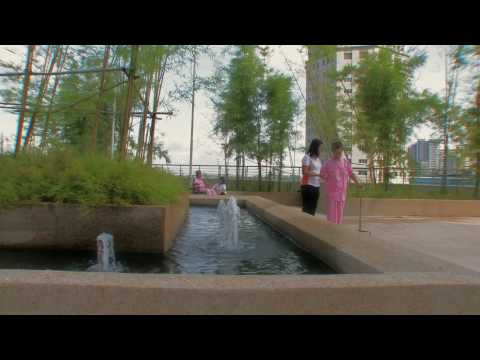
Accreditation and certifications

Many hospitals in Singapore have received accreditation from reputable organizations like the Joint Commission International (JCI) and the International Society for Quality. This means that these healthcare facilities meet international standards of quality and safety .
Accreditation ensures that medical tourists receive reliable and safe healthcare services during their stay in Singapore.
Being accredited by JCI or other recognized bodies also contributes to building trust and confidence in Singapore’s healthcare system among medical tourists. It shows that these hospitals adhere to strict guidelines, regulations, and best practices.
These accreditations play a significant role in maintaining quality assurance, patient safety, and overall healthcare standards in the country.
In addition to accreditation, many physicians practicing in Singapore are also accredited or certified by relevant professional boards or associations. This further assures medical tourists of the competence and expertise of their doctors.
The combination of hospital accreditation and qualified physicians gives medical tourists peace of mind when seeking treatment in Singapore.
JCI and local accreditations

In Singapore, healthcare providers focus on maintaining high quality standards and patient safety. To ensure this, hospitals and medical centers in the country undergo accreditation by both local agencies and international organizations like the Joint Commission International (JCI).
Currently, there are 13 JCI-accredited hospitals and medical centers in Singapore. Additionally, there are 21 medical service providers accredited by JCI . These accreditations demonstrate that these facilities meet international standards of quality care and adhere to regulatory requirements.
Moreover, Singapore also has its own local accreditations for health facilities , which further highlight their commitment to best practices in patient care . These accreditations play a significant role in establishing Singapore’s reputation as a top destination for medical tourism with internationally recognized healthcare facilities.
With these extensive accreditations from both local agencies and international organizations like JCI, you can have peace of mind knowing that the healthcare services you receive in Singapore meet stringent quality standards.
Whether it’s a hospital or a clinic you choose for your treatment or procedure, rest assured that they have been thoroughly evaluated to ensure patient safety and compliance with regulatory requirements.
Accredited physicians

They play a vital role in providing medical treatments to both local patients and international medical tourists.
With the rise of medical tourism in Singapore, there has been an increase in the number of accredited physicians in the country. These licensed and certified professionals offer their expertise across various specialties, ensuring that patients receive top-notch care during their time in Singapore.
The presence of accredited physicians gives both local residents and medical tourists peace of mind knowing that they will be receiving treatment from qualified professionals who follow strict quality control measures .
Benefits and Risks of Medical Tourism in Singapore
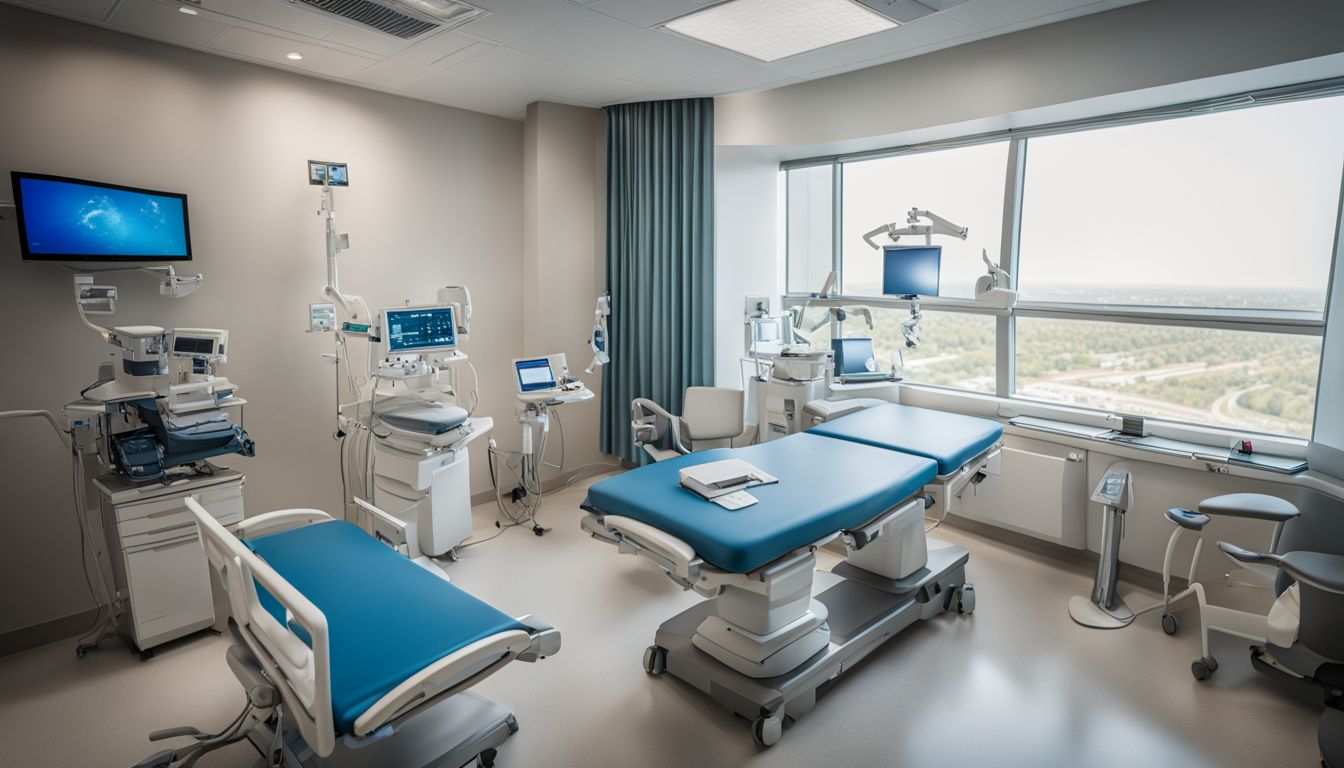
Singapore’s medical tourism industry offers several benefits for individuals seeking treatment abroad. Firstly, one of the major advantages is the affordability of healthcare services compared to other countries.
Medical tourists can expect lower expenses for treatments and procedures , making it a cost-effective option. Secondly, Singapore is known for its highly skilled healthcare professionals who are trained in world-class facilities.
This ensures that patients receive quality care and expertise during their medical journey.
On the other hand, there are also risks associated with medical tourism in Singapore that individuals should be aware of. These include potential complications or adverse effects from treatments, as well as the possibility of language barriers and cultural differences .
It’s crucial to thoroughly research and choose reputable hospitals and clinics to minimize these risks.
Overall, while there are benefits such as lower costs and skilled medical staff in Singapore’s medical tourism industry, it is important to weigh these against the risks involved so that individuals can make informed decisions about their healthcare choices.
Travel & Accommodation

When traveling to Singapore for medical tourism, you will need to consider visa requirements, cultural norms, and make arrangements for your travel and accommodations.
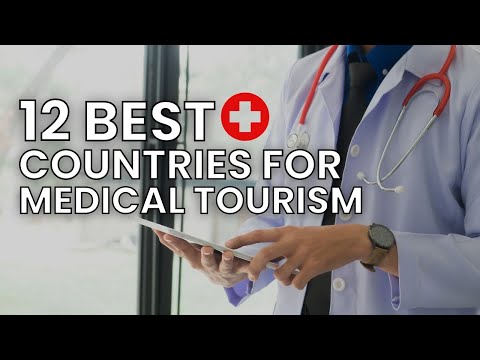
Visa information

Many nationalities can enter Singapore without requiring a visa. However, if you need a visa to enter the country as a medical tourist, there are some important things to keep in mind.
Visa requirements include providing proof of sufficient funds for your stay, a letter from the Singaporean medical facility confirming your treatment plan, and proof of accommodation during your visit.
In addition to these requirements, you may also need to provide other visa-related documents such as proof of your treatment plan and confirmation of accommodation. It’s important to check with the relevant authorities or consult the comprehensive guide provided by Singapore for detailed information on visa regulations and necessary documentation.
If you’re planning a trip to Singapore for medical treatment, it’s essential to be aware of the visa considerations and ensure that you have all the required documentation in order.
Cultural considerations
When traveling to Singapore for medical tourism, it is important to consider the cultural aspects of the country. Singapore is a diverse country with a mix of Chinese, Malay, Indian, and Western influences .
This diversity is reflected in various cultural practices and traditions that you may come across during your stay.
One significant cultural consideration is dress code and conservative attire when visiting healthcare facilities. It is recommended to dress modestly and avoid wearing revealing or inappropriate clothing out of respect for local customs and tradition.
Language can also be a potential barrier. While English is widely spoken in Singapore, Mandarin, Malay, and Tamil are also prevalent languages. It’s helpful to have basic knowledge or use translation services to communicate effectively with healthcare providers.
Another important aspect to keep in mind is dietary preferences based on religious beliefs or cultural practices . Singaporean cuisine offers a variety of options but may have certain restrictions or preferences depending on different faiths.
Travel arrangements and accommodations
When traveling to Singapore for medical tourism, you will find a wide range of travel arrangements and accommodations to suit your needs. Singapore has a well-developed transportation system that makes it easy for medical tourists to access their desired healthcare facilities and accommodations.
Whether you prefer affordable hotels or high-end resorts , there are plenty of options available. The popular areas like Orchard Road and Marina Bay offer a variety of lodging choices that are located close to major medical facilities .
You can also enjoy the beautiful beaches and visit tourist attractions during your recovery period. With convenient transportation and a wide range of accommodation options, you can expect a seamless experience throughout your medical journey in Singapore.
Weather and climate
Singapore has a tropical climate , with hot and humid weather all year round. This is because the country is located only one degree north of the equator. The warm temperatures and high humidity levels can be beneficial for patients who are looking for a warm climate during their recovery after medical procedures.
The consistent warm temperatures throughout the year, thanks to Singapore’s proximity to the equator, provide a comfortable environment for recuperation. However, it’s important to note that the hot and humid weather in Singapore may pose challenges for some medical tourists , especially those who prefer cooler climates.
Legal & Ethical Considerations

Consider the malpractice and liability laws that apply to medical tourism in Singapore, as well as any conflicts of interest that may arise during the process.
Malpractice and liability laws
Malpractice and liability laws are important considerations in the field of medical tourism. These laws help ensure that doctors are held accountable for any medical negligence or errors they may commit during treatment.
In Singapore, like in many other countries, these laws serve as a deterrent to prevent doctors from making mistakes that could harm patients.
However, when it comes to medical tourism across international boundaries, the settlement of malpractice issues becomes uncertain. This is because different countries have their own set of regulations and legal systems regarding medical malpractice and consumer protection.
As the industry continues to grow rapidly, ethical and legal challenges arise with regards to ensuring patient safety and satisfaction .
It is crucial for both patients and healthcare providers to be aware of these laws in order to protect themselves legally and ethically. Additionally, efforts should be made to establish clear guidelines on how such cases will be handled in cross-border situations, providing a framework for addressing disputes between patients and healthcare providers from different countries.
Conflicts of interest
Conflicts of interest can be a concern in the medical tourism industry involving different people and organizations. These conflicts arise when there is a clash between personal or financial interests and the best interests of patients.
It’s important to have clear guidelines and regulations to manage these conflicts ethically. Transparency plays a crucial role, ensuring that healthcare providers disclose any financial or non-financial interests that could potentially influence their decisions.
By doing so, patients can make informed choices about their treatments and trust in the integrity of healthcare professionals.
Managing conflicts of interest also requires stakeholder obligations and disclosure requirements. Patients have the right to know if their doctor has any financial ties to specific hospitals or clinics they are referred to for treatment.
This information allows patients to evaluate whether there might be potential biases influencing their doctor’s recommendations. Healthcare regulations should address these issues, emphasizing patient safety, ethical decision-making, and healthcare transparency .
In conclusion, conflicts of interest in the medical tourism industry can jeopardize patient care and undermine trust in healthcare systems. To prevent this, stakeholders must prioritize ethical practices by disclosing any conflicting interests while maintaining professional integrity.
Transparent communication empowers patients with necessary information for making well-informed decisions about their health and treatment options.
Post-Procedure Care

After your procedure in Singapore, it’s important to take care of yourself during the recovery period . Singapore offers excellent post-procedure care to ensure your well-being and successful healing.
The top hospitals and clinics provide comprehensive packages that include follow-up visits , medication management , rehabilitation services , and any necessary aftercare treatments . These facilities have experienced medical professionals who will monitor your progress and address any concerns or complications that may arise.
Additionally, Singapore’s beautiful beaches, tourist spots, and luxurious hotels offer a serene environment for you to relax and recuperate after your procedure.
During your post-procedure care in Singapore , make sure to follow all the instructions given by your healthcare provider. This may include taking prescribed medications as directed, attending follow-up appointments with specialists if needed, following a healthy diet plan recommended by the doctors or nutritionists for optimal recovery.
It is important to adhere strictly to these instructions as they are tailored specifically for you based on the procedures performed.
Remember that proper post-procedure care is crucial for a smooth recovery process. By availing of the excellent medical services in Singapore and adhering to all guidelines provided by healthcare providers during this time period will help ensure a positive patient experience and maximize the benefits of undergoing medical treatment abroad.
Frequently Asked Questions (FAQs)
-129715254.jpg)
In this section, we will address some common questions that people often have about Singapore’s booming healthcare tourism. One frequently asked question is about the economic impact of medical tourism on the country.
Well, it has been reported that Singapore’s medical tourism revenue reached a staggering amount in recent years . Another popular inquiry is whether medical tourists should disclose their entire travel and medical history during their visit to Singapore.
The answer is yes! It is crucial for your safety and well-being that you provide transparent disclosure of all relevant information, including any previous surgeries or treatments you have received.
Additionally, many people want to know what kinds of surgical procedures and treatments are available in Singapore . From complex heart surgeries to cosmetic procedures, there are various specialties offered by top hospitals and clinics here.
People also wonder if they can expect a patient-centered approach when receiving treatment in Singapore. Absolutely! The healthcare system in Singapore places great emphasis on providing personalized care throughout every step of your journey – from pre-treatment consultations to post-procedure follow-ups.
So rest assured, your needs will be well taken care of.
How to Find and Choose an International Health Insurance Plan
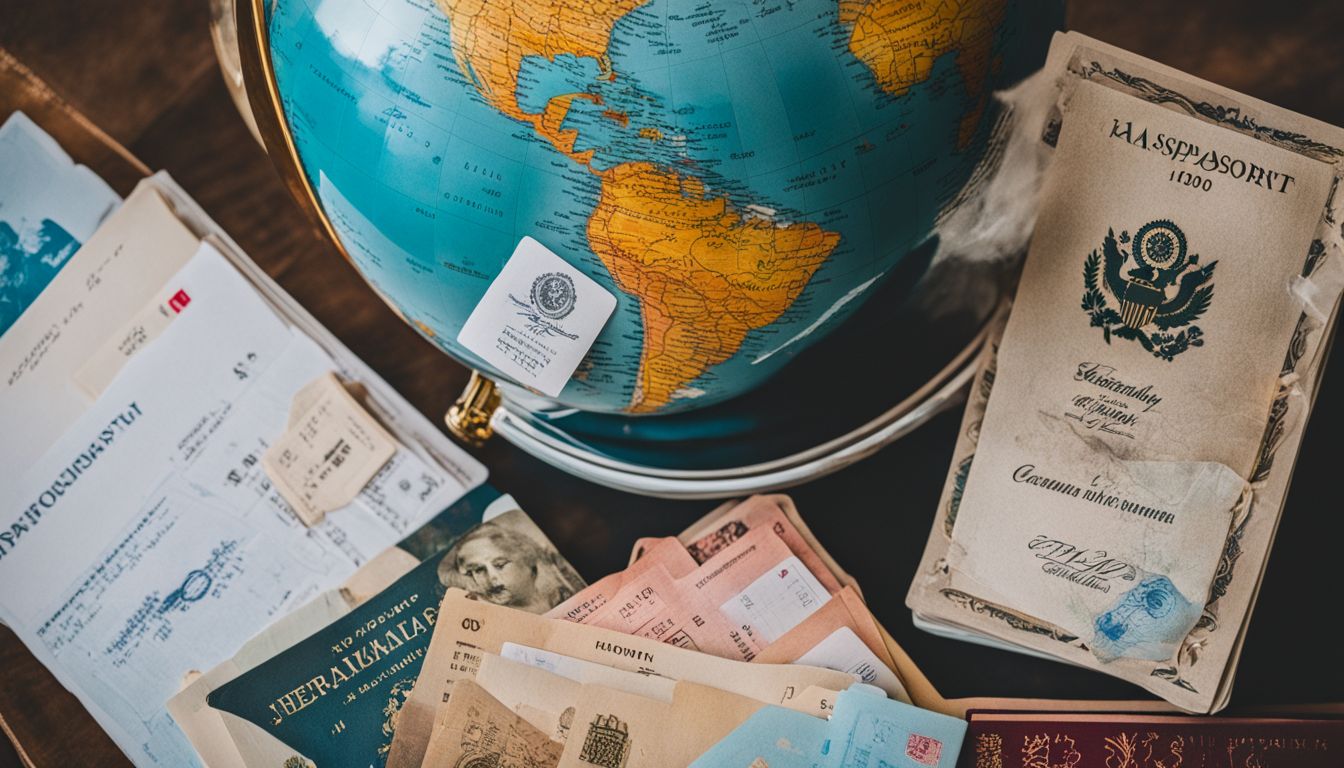
Looking for the right international health insurance plan can be overwhelming, but with our comprehensive guide, you’ll find all the information you need to make an informed decision.
Don’t miss out on this essential step in your medical tourism journey – read more now!
Coverage options
When planning for medical tourism in Singapore, it is important to consider your coverage options. Finding and choosing an international health insurance plan that suits your needs can help provide financial protection in case of any unforeseen medical expenses.
There are various factors to consider when selecting the right coverage, such as the extent of coverage offered , premium costs , deductible amounts, and exclusions. Comparing different plans can help you determine which one provides the most comprehensive coverage at a reasonable price.
It’s also important to look for international health insurance plans that offer direct billing arrangements with hospitals and clinics in Singapore. This means that instead of paying upfront for medical expenses and then seeking reimbursement from your insurance provider, the hospital or clinic will bill your insurer directly for eligible services.
This can save you time and hassle during your medical journey.
Make sure to thoroughly review all aspects of the insurance plan before making a decision. Understand what is covered under the policy, including pre-existing conditions and emergency care .
Additionally, take into account any waiting periods or limits on certain treatments or procedures.

Direct billing
Direct billing is an important consideration when choosing an international health insurance plan for your medical tourism in Singapore. With direct billing , you can have peace of mind knowing that the insurance company will directly settle your medical expenses with the healthcare provider.
This means that you don’t have to pay out of pocket and then wait for reimbursement later. Direct billing simplifies the payment process , making it more convenient and efficient for both patients and healthcare facilities.
By opting for a health insurance plan with direct billing arrangements, you can easily access medical services without having to worry about financial transactions during your treatment or stay in Singapore.
This ensures that you receive timely and seamless care without any unnecessary delays or complications. It’s important to note that not all international health insurance plans offer direct billing options, so be sure to inquire specifically about this feature when selecting your coverage.
Costs and inclusions
When planning for medical tourism in Singapore, it is important to consider the costs and inclusions of international health insurance plans . These plans can help cover expenses such as premiums, deductibles, co-pays, and out-of-pocket expenses.
To find the most suitable plan, it is recommended to compare different options and look for comprehensive coverage at an affordable price . Factors like coverage limits and a network of healthcare providers should also be taken into account when choosing an insurance plan.
Consulting with an insurance broker or agent who specializes in international health insurance can provide helpful guidance in finding the right plan that meets your needs.
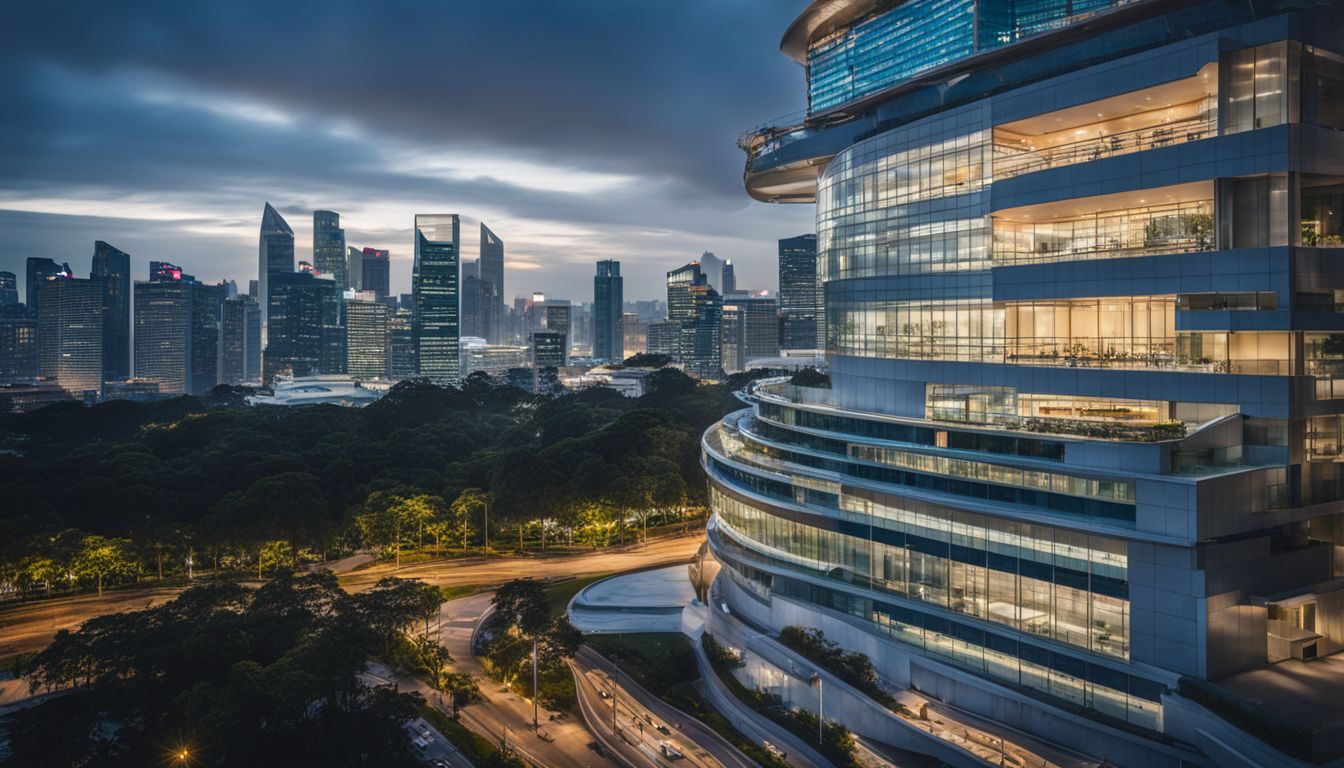
In conclusion, Singapore’s medical tourism industry is on the rise, offering a comprehensive range of medical services in a efficient healthcare system . With top hospitals and clinics , quality accreditation, and competitive costs, Singapore has become a popular destination for international patients seeking medical treatments.
Whether it’s for specialized procedures or general healthcare needs, this guide provides valuable information to make informed decisions and ensure a positive experience during your medical journey in Singapore.
1. What is medical tourism?
Medical tourism refers to traveling to another country for the purpose of receiving medical treatment or procedures.
2. Why has Singapore become a popular destination for medical tourism?
Singapore has become a popular destination for medical tourism due to its world-class healthcare facilities, highly skilled doctors and specialists, and reputation for providing high-quality care at competitive prices.
3. What types of medical treatments are available in Singapore?
Singapore offers a wide range of medical treatments including specialized surgeries, organ transplants, cancer treatment, fertility treatments, cosmetic procedures, and more.
4. How can I choose the right hospital or clinic in Singapore for my specific needs?
To choose the right hospital or clinic in Singapore for your specific needs, consider factors such as their accreditation, reputation, expertise in your particular condition or treatment, patient reviews and testimonials, and communication options (such as language proficiency).
5. Does insurance cover the cost of medical tourism in Singapore?
Insurance coverage for medical tourism in Singapore varies depending on your insurance provider and policy terms. It is advisable to check with your insurance company before undergoing any treatment abroad to understand what expenses may be covered.
Similar Posts
Sudio sweden earphones review – celine chiam | singapore lifestyle, beauty and travel blogger.
Previously I’ve already reviewed my very first Sudio Sweden and I have been loving it so much! Thanks to the kind folks over at Sweden, they have sent me another new piece that they have recently launched – Vasa BLÅ – Rose Gold Black. Let’s jump in to see how gorgeous this exquisite piece is. Sudio…
Chosungah22 Bounce Up Pact Ultra SPF50+/ PA+++ | BNT News – Celine Chiam | Singapore Lifestyle, Beauty and Travel Blogger
If you are very active in the beauty scene, you would have heard of this Korean brand – Chosungah22. Making quite a big hit as it entered Singapore not too long ago (SASA Singapore), this brand has already received quite a lot of talks and attention back in Korea. Reason being, this brand was created by…
Celine Chiam | Singapore Lifestyle, Beauty and Travel Blogger: travelogue
Many people always ask – What are the things to do in Bangkok? This is a very extensive and comprehensive guide to travel in Bangkok for you to read before planning a trip to Bangkok. I’m no professional tourguide whatsoever, but these are the information I find it very useful for myself, considering I’ve been…
Get your pretty nails done at J Nails Garden Singapore – Celine Chiam | Singapore Lifestyle, Beauty and Travel Blogger
Some of you have been asking where I’ve been doing my nails – it’s at J Nails Garden! I got to know her and her nail salon through Vanitee, a beauty app where you can book your appointments for any beauty services in Singapore, such as manicure. So far, I’ve done 3 different designs with her…
Uncovering The Latest Scams In Singapore: How To Protect Yourself From Financial Fraud
Are you concerned about the growing number of financial scams in Singapore and wonder how to protect yourself from falling victim? The alarming fact is that these fraudulent schemes have been on a steady rise, stripping countless individuals of their hard-earned money. This article will ultimately provide practical guidance to help you stay one step ahead of…
Discover The Enchanting Pink Palace In Bangladesh
architecture of Ahsan Manzil in a bustling cityscape.” title=”A group of diverse tourists amazed by the stunning architecture of Ahsan Manzil in a bustling cityscape.” class=”awimage” /> Looking for an oasis of calm in the bustling city of Dhaka, Bangladesh? Tucked away on the banks of the Buriganga River lies Ahsan Manzil, also known as the enchanting Pink Palace. Our blog post…
Leave a Reply Cancel reply
Your email address will not be published. Required fields are marked *
Save my name, email, and website in this browser for the next time I comment.
- Asia Briefing
- China Briefing
- ASEAN Briefing
- India Briefing
- Vietnam Briefing
- Silk Road Briefing
- Russia Briefing
- Middle East Briefing
- Asia Investment Research
Singapore’s Healthcare Industry: Gateway to ASEAN’s Healthcare Market
Singapore’s healthcare sector is considered one of the best in the world, providing some of the most advanced healthcare services. This is attributed to strong regulatory governance, a cost-sharing system between the private and public sectors, and contributions from medical saving accounts.
The industry continues to attract major international investors, enticed by the country’s deep base of skilled talents, pro-business environment, infrastructure, and thriving research and development landscape.
Singapore’s healthcare industry is recognized as among the best in the world, due to a combination of factors – strong regulatory governance, contributions from medical saving accounts, and a cost-sharing system between the private and public sectors.
The government’s key strategies have been to transform the healthcare sector through IT-enabled systems, strong clinical research, improving long-term care, and moving towards sophisticated care.
Singapore thus serves as a showcase for new medical technology and healthcare delivery, attracting more than 500,000 medical tourists annually who account for just under four percent of overall tourism receipts (US$1 billion – Interestingly, 60 percent of these were Indonesian patients.
Singapore’s success story
According to market insights firm Fitch Solutions, Singapore’s healthcare market is expected to grow to US$49.4 billion by 2029, and healthcare spending is expected to reach nine percent of GDP by the same year.
Further, more Singaporeans are using healthcare services, given its ageing population – 26.6 percent of the country’s population will be over the age of 65 in 2035.
Singapore, however, still spends less of its economy on healthcare than other major economies, such as the United States, which spends on average 17 percent of GDP (US$3.6 trillion) on healthcare annually. And yet, life expectancy at birth in Singapore is higher by two or three years compared to the UK and its infant mortality rates are among the lowest in the world, approximately half of that of Canada, the UK, and France.
Overview of Singapore’s universal healthcare system
Singapore’s universal healthcare program is funded by a multipayer system, comprising of tax revenues – which cover only one-fourth of the total healthcare costs – and payments from individuals and their employers through mandated life insurance schemes and deductions made to the compulsory savings plan, the Central Provident Fund .
The healthcare system is centered around three programs, also known as the 3Ms:
MediSave – Singaporean citizens and permanent residents are obligated to contribute between eight to 10.5 percent of their monthly salary to their personal MediSave account. This can then be used to pay for the individual’s and their dependent’s medical bills. The dependent must also be a Singaporean citizen or a permanent resident to qualify.
MediShield Life – This is another mandatory healthcare program that provides basic protection for citizens and permanent residents. Medical treatments under this scheme are most suitable in public hospital B2 or C wards. If an individual wants to use a B1 or above ward in a public hospital, then they will need to pay a larger portion of the bill themselves.
For each person, they will receive an annual claim limit of S$100,000 (US$72,800) per year and there is no lifetime limit.
Medifund – The Medifund scheme is an endowment fund established by the government and serves as a safety net for citizens and permanent resident holders if they do not have enough funds in their MediSave and MediShield Life accounts.
Patients can get medical bills subsidized if they are treated at public hospitals with wards that have fewer amenities. Patients, for instance, that are admitted to C-class wards (a room with eight beds) can get a subsidy of up to 80 percent of their medical bills.
Pharmaceutical and biomedical industries: Leading drivers of economic growth
Singapore’s pharmaceutical and biomedical sectors are fast-becoming leading drivers of economic growth not only for the country’s healthcare industry but also for its manufacturing sector.
The country’s deep base of skilled talents, pro-business environment, infrastructure, and thriving research and development landscape has attracted some of the largest pharma firms in the world. This has resulted in Singapore being one of the few countries that are able to export more pharmaceutical products (approx. US$369 billion in 2020) than it imports (US$8.92 billion in 2020).
There are currently more than 50 manufacturing facilities in the country, with eight of the world’s ten largest pharmaceutical firms owning plants in Singapore. Some of the major players include Abbott, GlaxoSmithKline, Novartis, and Pfizer, who account for more than 40 percent of Singapore’s regional market.
Since the onset of the COVID-19 pandemic , there has been an increase in demand for emergency and intensive-care use drugs, such as antibiotics and anesthesia products, with Europe, the US, and Japan being the largest export markets for Singapore.
Research and development
Singapore’s multidisciplinary and interdisciplinary approach has made the country a hub for biomedical research and development (R&D) in Asia with employment in the biomedical sector doubling in the past decade (more than 24,000 people in 2019 or 20 percent of the manufacturing sector).
The country has been able to draw internationally renowned scientists as well as foreign students. The National University of Singapore (NUS) and Nanyang Technological University (NTU) are consistently ranked among the world’s top universities.
The government pledged some S$19 billion (US$13 billion) for research and innovation for the 2016-2020 period, which includes S$13.5 billion (US$9.8 billion) for science and technology.
There are currently over 50 Singapore-incorporated companies in the field of biomedical sciences R&D, that frequently collaborate with local and international research institutes. The R&D industry has thus the immense potential for rapid growth and foreign investment.
The city-state’s biomedical research centers include:
- Singapore Institute for Clinical Sciences;
- Institute of Bioengineering & Nanotechnology;
- Institute of Molecular and Cell Biology;
- Genome Institute of Singapore; and
- Bioinformatics Institute.
Vaccination production
Singapore has also the potential to be a major vaccine production hub in the region.
German biotechnology company BioNTech , which developed the COVID-19 vaccine —BNT162b2 — with American pharmaceutical firm Pfizer, has stated its intention to establish its Asia-Pacific regional headquarters in Singapore , where it will also set up an mRNA manufacturing facility.
The facility is expected to produce hundreds of millions of mRNA vaccine doses per year. Construction is set to be completed in 2023 and will be the company’s first manufacturing plant outside of Europe and North America. Further, the plant can help build a rapid-response production capable of tackling the threat of future pandemic threats in the Asia-Pacific region.
In addition to BioNTech, French pharmaceutical giant Sanofi announced in April 2021 that it was investing 400 million Euros (US$474 million) over five years to build a vaccine production center in Singapore.
Medical devices
Singapore’s medical devices industry is expected to be worth US$1.3 billion by 2022 due to increasing government spending, an ageing local population, as well as demand from the region.
More than 60 multinational medical technology (medtech) companies leverage the country’s strong engineering capabilities and high-quality assurance to manufacture high-value products, ranging from life science instruments to contact lenses. In addition, some 60 percent of the world’s microarrays and one-third of the world’s mass spectrometers are manufactured in Singapore.
Investors are attracted by Singapore’s strong base for research and innovation that help medtech firms in designing new business models in healthcare, such as the use of big data to provide better patient-centric care. This, in turn, provides medtech companies with the capabilities to export their products or services to go-to-markets in ASEAN as well as Asia.
Another advantageous factor for international investors is its intellectual property laws, which are among the strongest in Asia.
The Intellectual Property Office of Singapore (IPOS), a government agency under the Ministry of Law, launched the world’s first trademark registration mobile app in 2019, reducing the time to file a trademark by 80 percent. Moreover, the agency also launched the SG Patent Fast Track Program in May 2020, which aims to approve patent applications in as quickly as six months.
Registering medical devices in Singapore
Medical devices in Singapore are regulated by the Health Sciences Authority (HSA), a statutory board under the country’s Ministry of Health that is responsible for the regulation of health products.
There is a specific evaluation route for medical device registrations: The evaluation route depends on:
- The risk classification of the device;
- The prior approvals provided by any overseas reference regulatory agencies; and
- The duration of safe marketing for the device.
The HSA has a general risk classification system that all medical devices fall under.
Several factors affect the risk classification of the medical device. These are:
- The degree of invasiveness;
- Duration in the body;
- Local versus systemic effects (e.g. conventional versus absorbable sutures).
- Does the medical device deliver medicinal products or energy to the patient?; or
- Does the medical device have a biological effect on the patient?
If two or more of the mentioned classification rules apply to the medical device then they are assigned the highest classification class.
Class A medical devices do not require to be registered. However, the business must complete the Class A exemption list during its application process .
Class B, C, and D
Class B, C, and D medical devices are required to be registered with the HSA, especially those that do not have prior approval from any overseas reference regulatory agencies. There are several evaluation routes businesses can use, depending on the medical device.
Source: HSA.gov.sg
Medical tourism
Before the pandemic, Singapore attracted some 500,000 medical tourists annually who contribute more than US$1 billion to the economy. Approximately 60 percent of these visitors are from Indonesia.
The country, however, is struggling to hold on to its market share as Malaysia and Thailand offer cheaper healthcare services. Bypass surgery in Malaysia costs an average of US$14,000 compared to the average of US$23,000 in Singapore. There is also a heavier cost burden on the city-state’s healthcare providers that is transferred to patients as the wages of doctors and nurses are the highest in ASEAN.
Despite facing increasing competition, Singapore will continue to be the preferred destination in specialized areas of medicine such as oncology, organ transplants, orthopedics, cardiology, and neurology, among others. In addition, many healthcare providers have sought to diversify their operations in recent years by investing in their presence overseas, in particular, the large market of Indonesia.
For further information and assistance, please reach out to [email protected] .
ASEAN Briefing is produced by Dezan Shira & Associates . The firm assists foreign investors throughout Asia and maintains offices throughout ASEAN, including in Singapore , Hanoi , Ho Chi Minh City , and Da Nang in Vietnam, Munich , and Essen in Germany, Boston , and Salt Lake City in the United States, Milan , Conegliano , and Udine in Italy, in addition to Jakarta , and Batam in Indonesia. We also have partner firms in Malaysia , Bangladesh , the Philippines , and Thailand as well as our practices in China and India . Please contact us at [email protected] or visit our website at www.dezshira.com .
- Previous Article US Exempts Tariffs on Vietnamese Solar Panels for Two Years
- Next Article Opportunities for Australian F&B Brands in Singapore
Our free webinars are packed full of useful information for doing business in ASEAN.
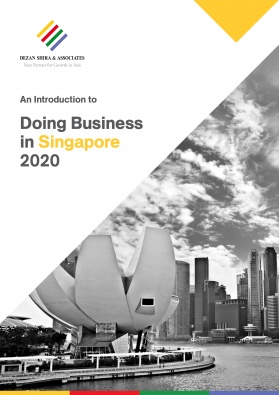
DEZAN SHIRA & ASSOCIATES
Meet the firm behind our content. Visit their website to see how their services can help your business succeed.
Want the Latest Sent to Your Inbox?
Subscribing grants you this, plus free access to our articles and magazines.
Get free access to our subscriptions and publications
Subscribe to receive weekly ASEAN Briefing news updates, our latest doing business publications, and access to our Asia archives.

Your trusted source for India business, regulatory and economy news, since 1999.

Subscribe now to receive our weekly ASEAN Edition newsletter. Its free with no strings attached.
Not convinced? Click here to see our last week's issue.
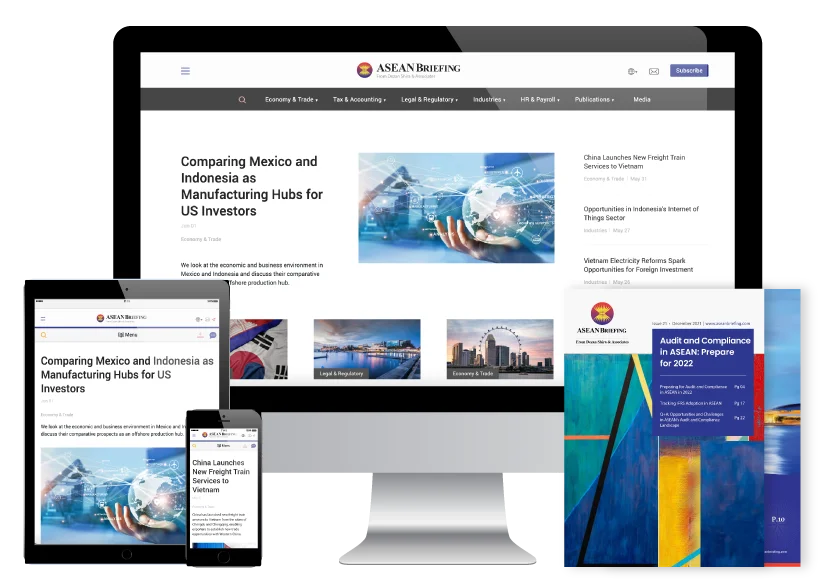
Search our guides, media and news archives
Type keyword to begin searching...

Contact Info
Medical tourism singapore: 10 reasons to go to singapore for healthcare.
- July 18, 2024
- 2 months ago

Singapore has become a popular destination for medical tourism, attracting patients from around the world. The city-state is known for its advanced healthcare system, quality medical facilities, and qualified healthcare professionals. In this article, we explore why Singapore is an excellent choice for those seeking medical treatment abroad.
Quality Medical Facilities And Specialty Clinics
Singapore has medical facilities equipped with modern technology with institutions providing a wide range of medical treatments, from routine check-ups to complex surgeries.
Singapore also has a reputation for specialty clinics for cancer , orthopaedics , eye treatment , cardiology and others.
Qualified Medical Professionals
Singapore is home to many qualified and experienced medical professionals. Many doctors and specialists have received training and certifications from leading medical institutions globally. This ensures that patients receive high-quality care and the best possible medical outcomes.
Advanced Medical Technology
Singapore’s commitment to innovation and technology is evident in its healthcare sector. The country uses the latest advancements in medical technology, including diagnostic equipment such as CT scans , robotic-assisted surgeries, and advanced treatment options like Proton Therapy that enhance patient care.
Stringent Quality Standards
Singapore’s healthcare system is regulated by strict quality standards to ensure patient safety and care. Most hospitals are recognised internationally for their healthcare services and accredited by the Joint Commission International (JCI) or the International Society for Quality in Healthcare (ISQua), which ensures it is of international standards of medical care. This commitment to quality has earned Singapore a reputation for reliability in healthcare.
Convenient Location And Accessibility
Located in the heart of Southeast Asia, Singapore is easily accessible from many parts of the world. Changi Airport, one of the busiest and most efficient airports globally, provides excellent connectivity. The city-state’s well-developed transportation infrastructure ensures that getting around Singapore is convenient and hassle-free.
Multilingual Healthcare Services
Singapore’s multicultural society is reflected in its healthcare services. Medical professionals in Singapore often speak multiple languages, including English, Mandarin, and Malay. This linguistic diversity ensures effective communication and a comfortable experience for international patients.
Comprehensive Range Of Treatments
Singapore offers a wide range of medical treatments and specialties. Patients can access specialised services in areas such as cardiology, oncology, neurology, orthopaedics, and fertility treatments. The country is also known for its expertise in fields like organ transplantation, cancer treatment, and paediatric care.
High Patient Satisfaction
Singapore consistently receives high patient satisfaction ratings , with many Singaporeans praising the quality of care, efficiency, and professionalism of healthcare providers. The emphasis on patient-centric care ensures that each patient’s needs and preferences are respected and addressed.
Safe and Clean Environment
Singapore is known for its cleanliness, safety, and well-maintained public spaces. The city’s high standards of hygiene and safety extend to its healthcare facilities, providing a secure environment for patients and their families. The efficient and transparent healthcare system further contributes to a positive medical tourism experience.
Supportive Government Policies
The Singaporean government supports medical tourism through various initiatives and policies. The Singapore Tourism Board (STB) and the Economic Development Board (EDB) work closely with healthcare providers to promote Singapore as a medical tourism destination. These efforts ensure that international patients receive seamless and efficient healthcare services.
Key Takeaway
With its quality medical facilities, qualified professionals, and advanced technology, Singapore stands out as a destination for medical tourism. The city-state’s commitment to quality, safety, and patient-centric care makes it an ideal choice for those seeking medical treatment abroad.
If you are seeking medical treatment in Singapore, contact us through the button below. Health365 has partnerships with trusted healthcare providers in Singapore , including surgeons, cancer treatment centres, health screening and diagnostic centres and more.
Related Articles On Health365
- Going To Singapore For Medical Services
Protect against cancer, cardiovascular disease, and other chronic diseases with regular health screening. Compare and shop for health screenings from Singapore and regional healthcare providers at a single convenient platform - shop.health365.sg
This article is informative only and is not intended to be a substitute for professional medical advice, diagnosis, or treatment, and should never be relied upon for specific medical advice.
Share This Post:
Discover other content.

Editor’s List For Finding The Best Surgeons For Breast

Fat Grafting (Face)

What is Colon Or Colorectal Cancer

Minmed Health Screening Packages – Health365

Unjustified CT Scan & MRI Tests: Affecting Urgent Treatments

Can High Cholesterol Cause Cancer? How Can We Lower

VinBrain Offers Comprehensive AI And Data Platforms, Including An
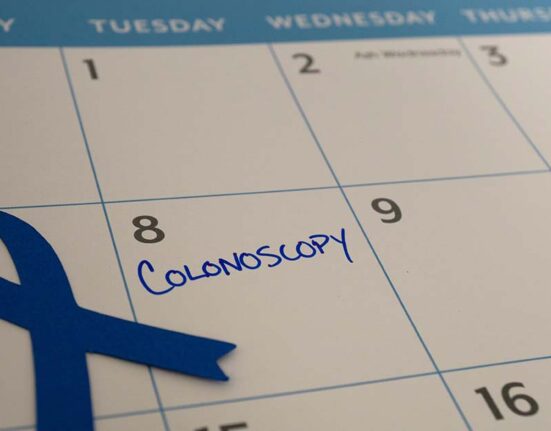
Colonoscopy Screening In Singapore

Breast Cancer Survival Rate in Singapore and Other Statistics

Robotic Prostatectomy For Prostate Cancer Treatment in Singapore

Orthopaedic Diagnosis And Assessment In Singapore

Knee Replacement Surgery In Singapore

Dr Lee Kuok Chung – Colorectal Surgeon In Singapore

Going To Malaysia For Healthcare: What Tourists Need To
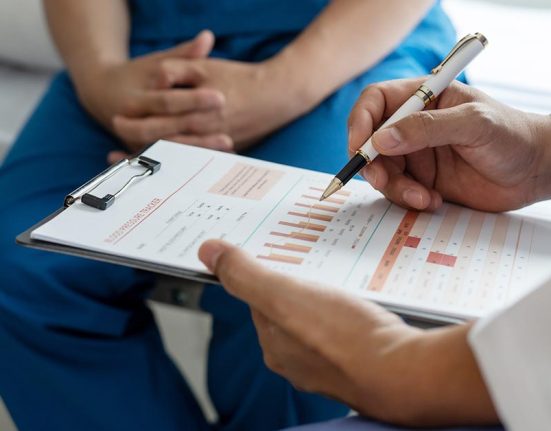
[Perspectives] Singapore Prostate Cancer Statistics And Lessons

Top Cancer In Singapore By Age Group (Females)

Is High Fructose Corn Syrup Bad For You?

Common Cancer Terms

Gonorrhea in Singapore – An Overview

Motiva Implants: What You Need To Know

Cost Comparison: Bangkok Aesthetic Clinic And Hospitals

Cataract Surgery In Singapore: What You Need To Know

Blood Test For Breast Cancer Detection In Singapore: Mastocheck

The Cost Of Health Screening In Singapore May Be

Stomach Cancer Risk Factors

Fast And Convenient Screening Test For Stomach Cancer With

How Much Does Eyelid Surgery In Korea Cost?

Stroke In Singapore: Statistics, Causes, And Risk Factors

New AsiaMedic Health Screening Package – Basic Plus For

Ankle Sprain In Singapore: Causes, Symptoms, And Treatment

How Long Can Cancer Remain Undetected?

Smart Watches That Measure Blood Pressure

How To Prevent Cervical Cancer

Gastroenterologist In Singapore, Dr Benjamin Yip, Joins Our Expert

Health365 Guide To Heart Screening In Singapore

First Lateral Ankle Replacement Surgery In Southeast Asia: A

Health365 Guide To Cancer Doctors In Singapore

Here’s What You Need To Know About Botox In

Comprehensive Health Screening In Singapore [Updated For 2024]

Dermatologist In Bangkok, Thailand – Dr Waranaree Winayanuwattikun (Dr

Liver Cancer in Singapore – Facts You Need To

Tumour Grading Vs Cancer Staging – What Is The

Renal Physician In Singapore – Dr Wong Weng Kin

Women’s Health Screening Packages In Singapore Under $600

Affordable Men’s Health Screening In Singapore
Vinbrain to launch ai-centric solutions to save lives and.

Colonoscopy Cost In Singapore Might Surprise You

Father’s Day and Mother’s Day Gifts for 2023

Blood Cancer In Singapore

New Blood Test For Ovarian Cancer Detection
Select your language preferences.
We noticed you are visiting from . Please select the language in which you would like to see the content.
Our Response to COVID-19 →
Destination Spotlight
Southeast asia - rebuilding medical tourism amid the pandemic.
Southeast Asia’s medical tourism industry grew to become a major player driving global medical travel in recent years. Among the popular ASEAN (Association of Southeast Asian Nations) destinations for medical travel, Thailand, Singapore, and Malaysia had become major players, driving inbound travel to the region for their competitive rates, top-line medical care, technological advancement, and renowned medical expertise. However, the coronavirus pandemic slackened the growth of the industry in the region, with stakeholders uncertain about the future of the industry.
Health buyers from other Asian countries including China, as well as the US and the UK, travel in millions annually for a wide range of medical care from medical screenings to high-end surgical procedures such as cancer treatments, neurology, oncology, transplant surgery, and orthopedics.
In the last decade, these ASEAN destinations gained the reputation of being the most preferred medical travel site in the region. In Malaysia, the health ministry sped up the growth and development of the industry, setting up regulations to put the country’s medical travel business on a global scale. In 2016, the country’s revenue from medical tourism rose to more than $238 million from its over 900,000 medical tourists that year. The Malaysian Healthcare Travel Council further expanded the market to attract over 1.2 million medical tourists and increased its revenue to more than $360 million in 2019.
Similarly, Singapore upped its stake in the medical tourism market by rebranding its medical travel industry to attract international patients who seek affordable complex medical treatments. The country improved the quality of its healthcare facilities to obtain accreditations from the Joint Commission International (JCI), attracting more than 500,000 medical tourists to its burgeoning market.
Thailand also closed the gap of top medical destinations in Asia, outpacing other countries in the region. Thailand is home to Bumrungrad International Hospital , one of the largest private hospitals in Southeast Asia and one of the most preferred medical tourism destinations in the region. The hospital serves over 1.1 million patients yearly, more than 50 percent of which are international patients from well over 190 countries. The hospital, which provides niche medical care in cardiology, oncology, and neurosurgery, is accredited by global quality organizations including the Global Healthcare Accreditation , further boosting the destination’s medical travel brand.
Although the United States remains the major international market for medical tourists, the ASEAN destinations have recorded the fastest growth in the last few years, expanding at a predicted growth rate of 15.5% between 2017 and 2023. International patients travel to these destinations to receive top-notch medical care at a fraction of the cost of similar treatments in the US. In many hospitals in ASEAN countries, the cost of care is up to 70% cheaper than in the US. For instance, a coronary artery bypass graft costs around $92,000 in the US but can be done for less than $17,000 in Malaysia.
But with the widespread coronavirus travel restrictions, the projected growth of the industry has reversed. Several months-long travel restrictions that have barred medical tourists from entering the region to seek care, decelerating the growth of the industry in the region.
In August, Bumrungrad Hospital announced a 90 percent drop in its profit in the second quarter of 2020 after its revenue ebbed by more than 40 percent due to the coronavirus crisis. Further, from January to June 2020, Bumrungrad saw a profit of about $25 million, falling by more than 55 percent from the first half of 2019, with much of its earnings from domestic patients.
Malaysia’s Penang Adventist Hospital, one of the country’s top medical tourism sites, also recorded a similar drop in revenue . The hospital, which is renowned for its advanced heart surgery treatments, reported a 66 percent and 55 percent decline in revenue in April and May respectively, as foreign patient visits dropped to zero and all but essential treatment for domestic patients was suspended.
According to the Malaysia Healthcare Tourism Council , fewer than 300,000 medical tourists visited for treatment in 2020, compared with over 1.2 million in 2019. Further, the council says the country’s revenue from medical travel dropped more than $263 million in 2020, compared to about $120 million in 2019. This estimate is short of the $400 million the industry earned in 2019 and nearly $500 million short of its earlier projections for 2020.
However, the country is taking measured steps to revitalize the industry amid the souring pandemic. In July, Malaysia opened its doors to medical tourists from six countries, including Singapore, Japan, and Australia, which have a relatively small outbreak.
Malaysia has also remodeled its healthcare for the international market, leveraging telemedicine to provide medical care until global travel is restored. Malaysia’s hospitals are focusing on using telemedicine platforms to provide international patients with access to cancer treatments, cardiology clinics, and fertility treatments.
Thailand is also making a bold move to rejuvenate the industry. In July, a month after reporting zero virus transmission, the province of Phuket in Thailand reopened its doors to international patients in a $97 million project to revive and expand the industry. The project, which is subject to the approval of the ministries of Public Health and Tourism and Sports, involves the construction of four world-class medical facilities, an international health plaza, an ultramodern long-term care center for the aged, and a comprehensive rehabilitation center.
The first phase of the project, expected to cost about $30 million will be completed in September 2021 while the second phase, which will focus on ramping up pandemic preparedness for future outbreaks, will commence in 2022. The Thai government hopes the program would expedite the recovery process for the industry, and also make it a major medical travel destination in the post-COVID-19 era.
However, the future is still uncertain and stakeholders suggest that the country may not record any significant recovery continue until the next few years.
Even though the pandemic remains under control in most parts of Southeast Asia, the erratic nature of the infection has discouraged authorities from opening up their borders and also dissuaded patients from visiting medical travel destinations still battling with the pandemic. Malaysia, for instance, is still closed to foreign arrivals until further review , and it remains uncertain if the travel ban will not be extended afterward.
Ultimately, the future of medical tourism in the region will depend on how governments respond to the COVID-19 crisis. Governmental strategies to rein in the outbreak and prevent future spikes will potentially influence the choice of international patients when selecting a travel site in the post-pandemic era, becoming a key component of the medical tourism destination brand. For now, that future is still hazy, and with concerns of the second wave of infections hitting many countries, it’s uncertain when the region’s medical travel industry will return to its robust pre-pandemic levels.
Unveiling the Power of Social Media Marketing in Medical Tourism
Korea: turning the focus to an emerging global leader in medical tourism, exploring the surge of cosmetic tourism: trends and considerations in aesthetic procedures abroad, holistic healing: exploring integrative medicine and wellness retreats, meeting the surge: the growing demand for knee replacement surgeries and advances in the field, bridging culture and care: insights from dr. heitham hassoun, chief executive of cedars-sinai international, mastercard and the medical tourism association join forces to revolutionize cross-border healthcare payments, in pursuit of excellence: ceo spotlight with ms. artirat charukitpipat, stem cells show promise for hair thickening, stem cell injection for back and neck pain, continue reading, guide to choosing korea for medical travel, transforming healthcare through innovation: ceo spotlight interview with matthew a. love, featured reading, medical tourism magazine.
The Medical Tourism Magazine (MTM), known as the “voice” of the medical tourism industry, provides members and key industry experts with the opportunity to share important developments, initiatives, themes, topics and trends that make the medical tourism industry the booming market it is today.

COMMENTS
According to the 2013 annual tourism statistics by the Singapore Tourism Board, medical receipts has seen a steady growth from 2009 to 2012 before dropping 25 percent year-on-year to S$832 million in 2013 from $1.11 billion in 2012. The strong Singapore Dollar, which appreciated roughly 30 percent against the Indonesian Rupiah from 2012 to 2013 ...
Discover how Singapore is revolutionizing medical travel with its advanced healthcare system, world-class facilities, and strategic geographical location. Learn about the key factors that make Singapore a top choice for medical tourists globally. Singapore medical travel, healthcare tourism Singapore, medical tourism Asia, world-class healthcare Singapore, international patients Singapore ...
Singapore's medical cost inflation was 10% in 2018, ... Economic Impact of Medical Tourism. Medical tourism is estimated to contribute over $100 billion to the global economy annually.
In general, Singapore has reinforced its global superiority by shaping an appealing profile and attaining high ranks in various aspects including economic freedom (The Heritage Foundation, 2015), ease of doing business (World Bank, 2014), attractiveness for medical tourism (Medical Tourism Index, 2014), healthcare system efficiency (Bloomberg ...
Singapore receives 500,000 medical tourists each year. The government previously projected it would receive one million annually by 2012. Medical tourism spend today accounts for less than 4% of overall tourism receipts. Knee replacement surgery in Singapore costs S$22,000, more than double Malaysian prices at S$10,000.
Singapore is home to some of the most beautiful destinations on the planet. With places such as the Marina Bay Sands, Singapore Zoo, Gardens by the Bay, and Singapore Botanic Gardens attracting nearly 20 million people from across the world to the country in 2019, Singapore is a much-traveled destination for tourism. However, the country is expanding its stake in another form of tourism ...
Singapore is also the world's 2nd freest and 2nd most competitive economy. ... At the September 2008 World Congress on Medical Tourism and Global Health held in San Francisco, Judy Lim, a delegate and Director of Marketing at MOH Holdings provided this perspective about medical tourism in Singapore: "Our two main objectives in attending ...
Further, medical tourism revenue grew at a 10% CAGR in the last decade, to around SG$1b currently. Here's more from Maybank Kim Eng: Join Healthcare Asia Magazine community. Your e-mail address. With GDP growth averaging c.5% in the past decade, median income in the country has been climbing in tandem. Rising affluence is typically accompanied ...
ACCORDING to the Medical Tourism Association, Singapore ranks second globally, after Canada in the Medical Tourism Index. Statista also shows that in 2023, Singapore is ranked first in having the best health system in the world index score of 86.9, followed by Japan and South Korea.
Capturing the Singaporean Medical Tourism Market: Explore effective marketing strategies, cultural accommodations, patient expectations, and the importance of Global Healthcare Accreditation (GHA) in delivering exceptional patient experiences. Discover how GHA's Gap Analysis and cultural training can prepare hospitals to enter this target market. Find out why patients and healthcare consumers ...
The MTI 2014-2015 assessed the attractiveness of 25 countries as medical tourism destinations. In 2016-2017, the MTI expanded to 41 destinations across five regions, doubling the size of the sampling. The 2020-2021 Medical Tourism Index comes at a time where the industry, and the entire world, has been changed forever by COVID-19.
Here's a list of 10 Hospitals in Singapore Famous for Medical Tourism, including locations and contact information: Name of the Hospital. Speciality. Location. Contact information. Singapore ...
Located at the crossroads of Asia, Singapore is a globally recognized hub for finance, technology, and healthcare. Known for its efficiency, high standards, and state-of-the-art medical facilities, Singapore has established itself as a leading destination for medical tourism. Its healthcare system consistently ranks among the top in the world ...
Benefits and Risks of Medical Tourism in Singapore. Singapore's medical tourism industry offers several benefits for individuals seeking treatment abroad. Firstly, one of the major advantages is the affordability of healthcare services compared to other countries. Medical tourists can expect lower expenses for treatments and procedures ...
By addressing the crowding-out effect on labor productivity, this paper sheds light on the economic impacts of medical tourism on host countries. Our empirical analysis confirms that medical tourism, on average, has a positive effect on host economies' output growth, particularly in non-OECD countries.
Tourists 2021. Login to view. Population 2021. 5.90 million. Diaspora. Login to view. A decade ago Singapore was a top medical tourism destination with ambitious plans for expansion. Now it is an also ran that is losing business every year to competitors. Overview.
rage medical tourism, the officials provide a long-stay option. While there is no procedure to renew such visa, the government may grant the exten. ion of a visitor's pass up to 90 days (ICA 2018b; ICA 2018d). The extended length of stay is subject to the Immigration & Checkpoints Authority Singapore (ICA)'s di.
Singapore's Healthcare Industry: Gateway to ASEAN's ...
Singapore attracts those looking for the highest quality of medical care in Southeast Asia Government statistics reveal that in 2014, people who visited the country with the primary purpose of seeking advanced medical treatment and care injected S$994 million into the economy. One reason that medical tourism has been such a success is that the ...
According to the 2013 annual tourism statistics by the Singapore Tourism Board, medical receipts has seen a steady growth from 2009 to 2012 before dropping 25 percent year-on-year to S$832 million in 2013 from $1.11 billion in 2012. The strong Singapore Dollar, which appreciated roughly 30 percent against the Indonesian Rupiah from 2012 to 2013 ...
The Singaporean government supports medical tourism through various initiatives and policies. The Singapore Tourism Board (STB) and the Economic Development Board (EDB) work closely with healthcare providers to promote Singapore as a medical tourism destination. These efforts ensure that international patients receive seamless and efficient ...
Southeast Asia's medical tourism industry grew to become a major player driving global medical travel in recent years. Among the popular ASEAN (Association of Southeast Asian Nations) destinations for medical travel, Thailand, Singapore, and Malaysia had become major players, driving inbound travel to the region for their competitive rates, top-line medical care, technological advancement ...
Economy Global Economy. China eyes medical tourism boost, but still a long way to go amid regional competition. China is not generally considered a go-to option for healthcare and treatments, with ...